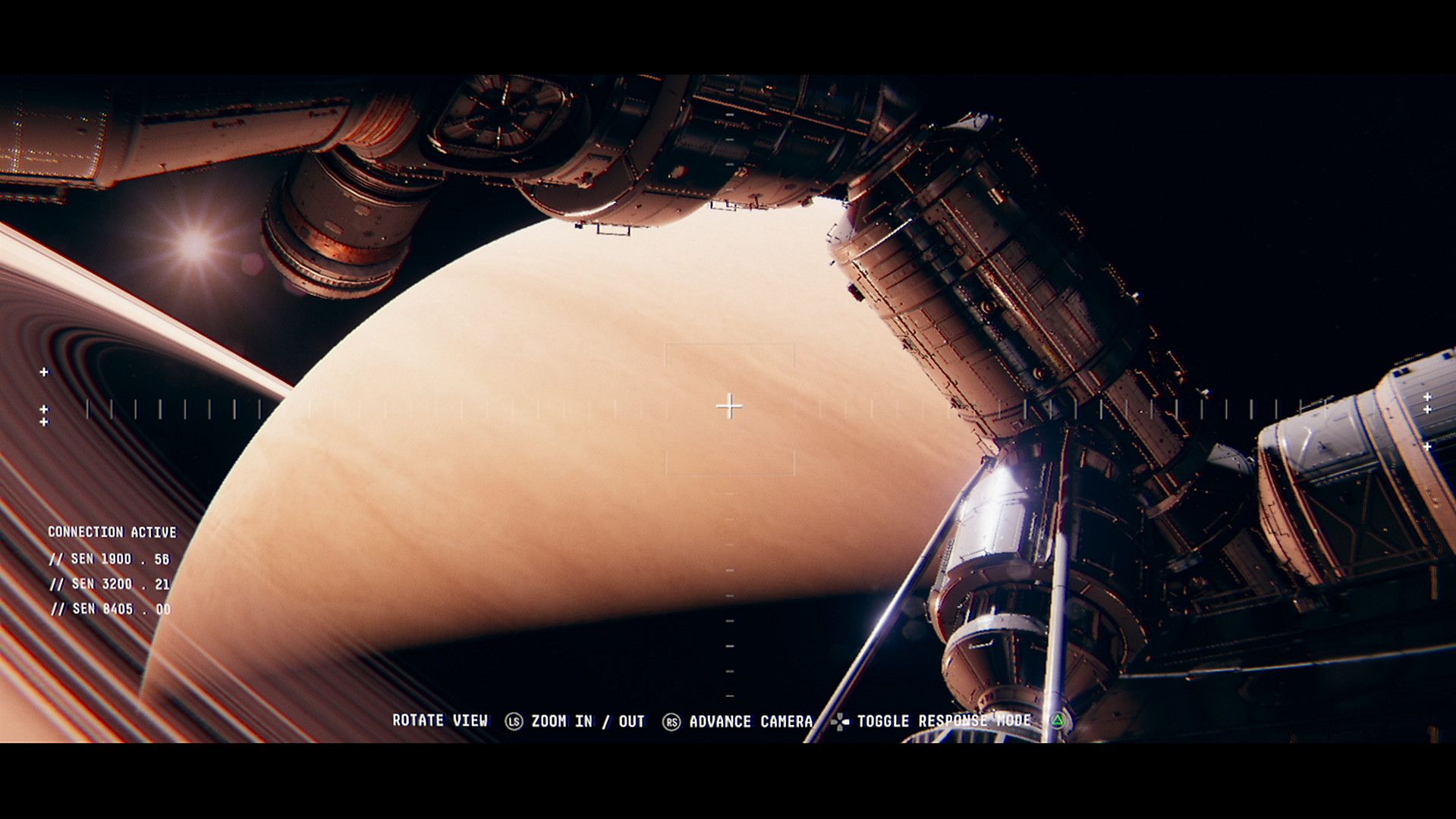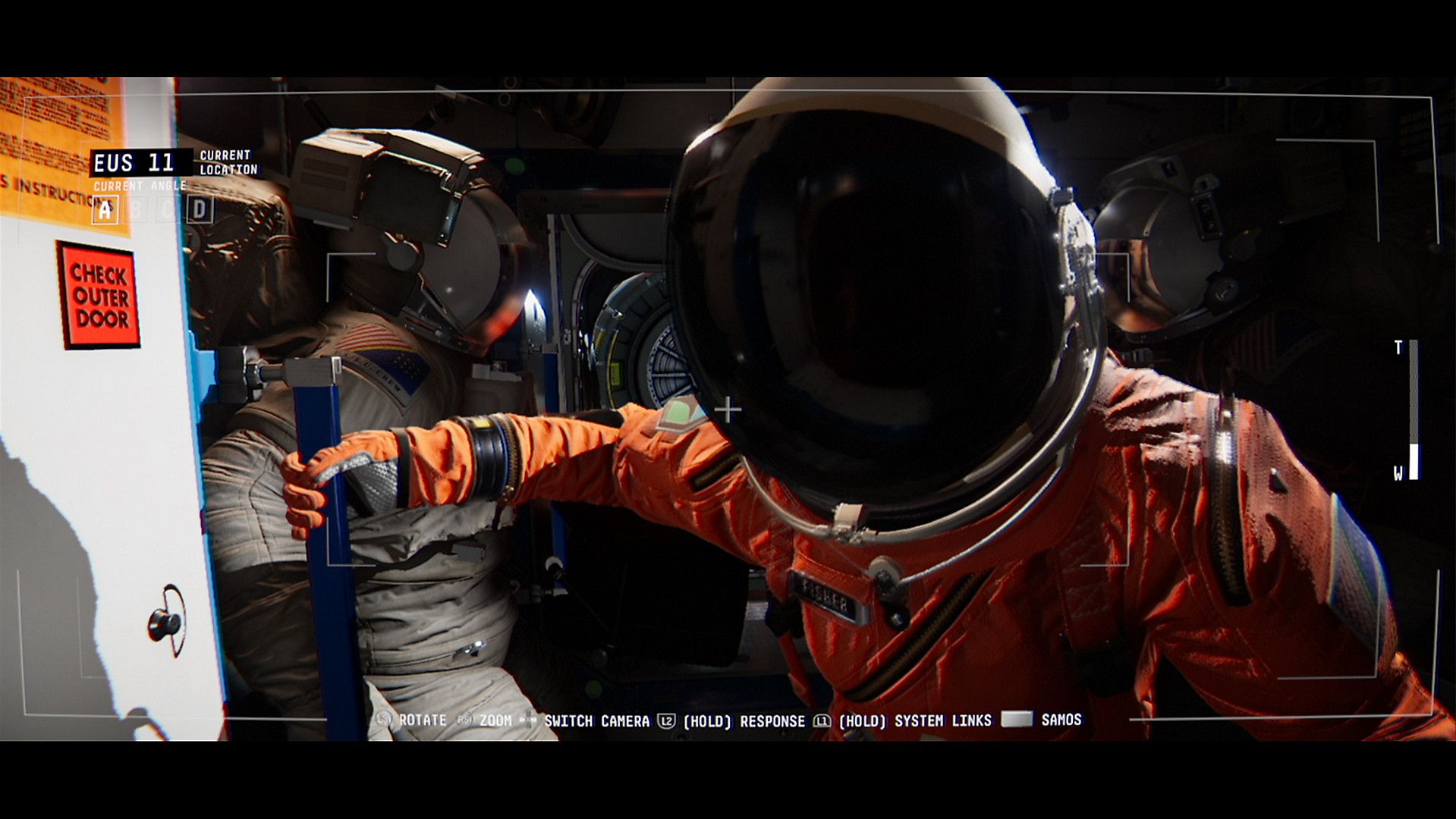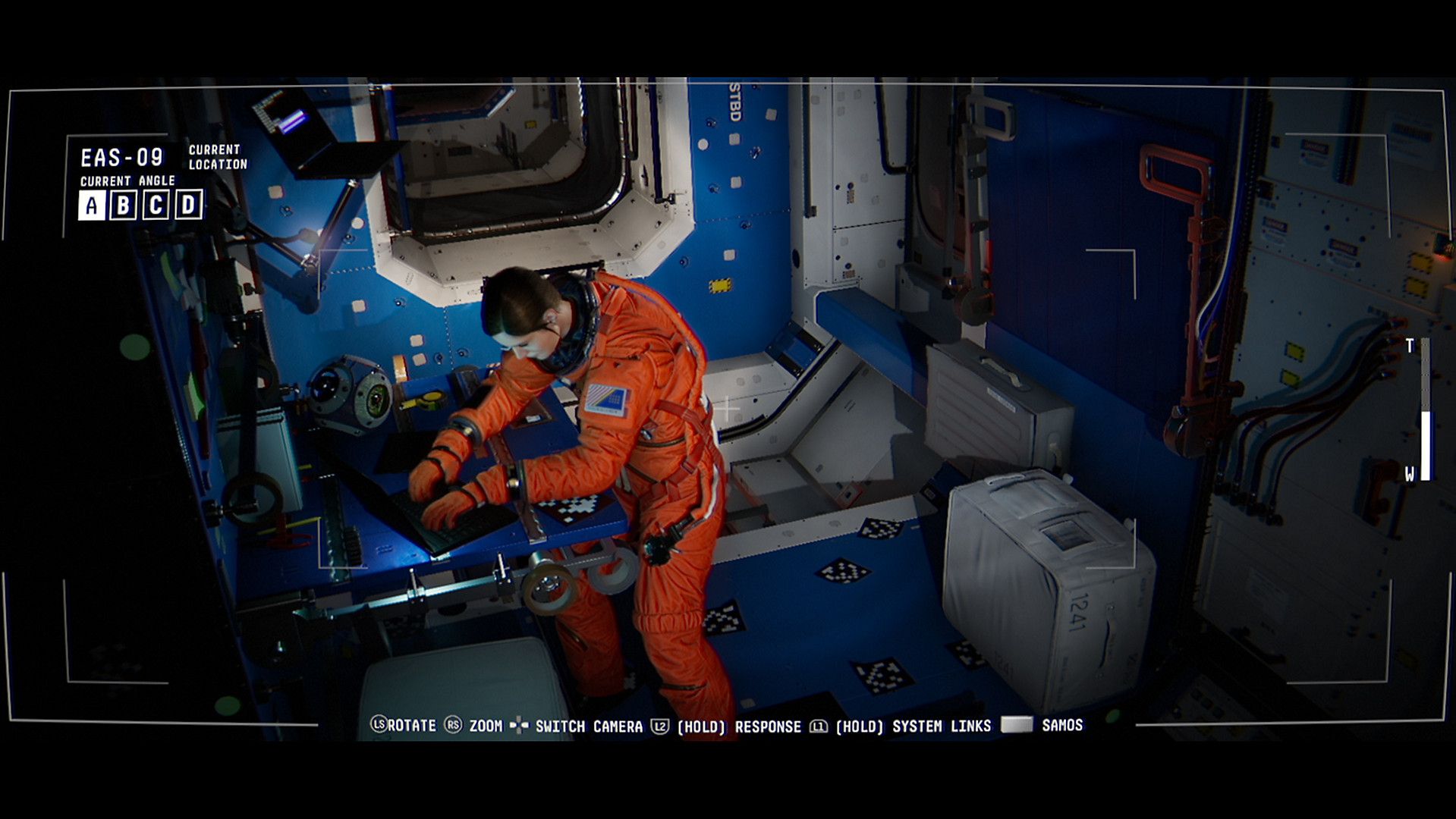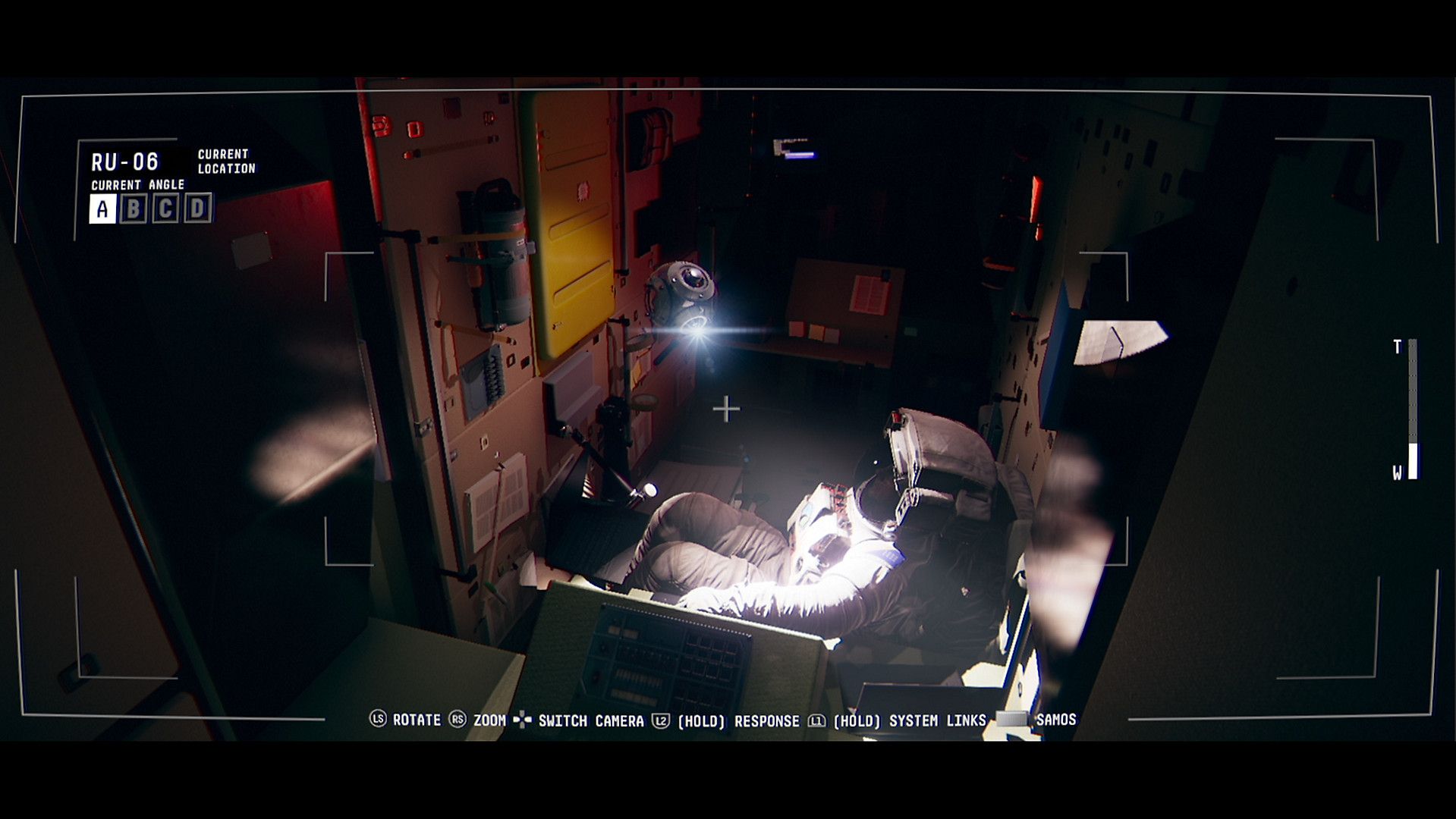The developers at No Code made a name for themselves in 2017 with the release of their "experimental text adventure" Stories Untold. It was a collection of four short stories that took players through a fascinating journey that jumped genres nearly as quickly as it delivered thrills. Observation instead focuses on a single story, delivering a compelling sci-fi narrative that is dripping in atmosphere and mystery.
From the jump, Observation makes it clear that this is something different. You play as S.A.M., the A.I. of an international space station. Your station experienced a power surge and you've lost a number of your core systems. You quickly meet Doctor Emma Fisher, the only person on the ship that is known to be alive when the game begins. The two of you must work together to try to find anyone who is still alive and fix the station as much as possible.
[pullquote]"Observation instead focuses on a single story, delivering a compelling sci-fi narrative that is dripping in atmosphere and mystery."[/pullquote]
In the beginning, I was a little worried about playing as an A.I. Observation gives you a choice of whether to accept or reject Emma's voice recognition check. You're role-playing as a computer. Shouldn't a computer just do what it's supposed to? That said, my concerns were quickly proven to be unnecessary as the few choices you're given don't seem to really matter.
Even during those opening moments, Observation does an incredible job of setting the mood and delivering the story in a way that makes you want to continually push forward to discover the game's secrets. The space station feels confined and No Code does a great job with the sound design to make the game feel tense throughout. Jump scares are minimal, but this is a thriller in every sense of the word.
And that's really where Observation shines. I constantly felt like there was another presence with me. That other-worldly presence does show its face a few times, but for the most part, it's just lurking within the tension that No Code builds throughout. I was never truly scared, but that foreboding sense of dread stuck with me from the opening scene to the closing credits.
As a narrative-driven game, I felt Observation's tale mostly worked. I don't want to spoil too much for you, but this is the kind of sci-fi that I find interesting. If you expect to finish the game and have everything nicely explained to you, I have bad news.
Observation doesn't want you to have all the answers. This is a mystery through and through. You start the game with minimal knowledge. You're on a space station with Emma and somehow you ended up in Saturn's orbit. Everyone else might be dead and it's your job to figure out what might be happening. As you play, you learn more about the ship and its inhabitants. However, almost every answer brings with it three or four new questions.
That doesn't mean the game's story is unsatisfying. It just means that No Code wants to leave the story open to both interpretation and a potential sequel. When credits roll, I could easily see the team ending it there or continuing on and making this a series. The story isn't perfect, but, from start to finish, it kept my eyes glued to the screen. Like a great page-turner, I had to know what happened.
Unfortunately, to get to that ending, I had to actually play the game. Obviously, story games aren't meant to have best-in-class control. However, I couldn't help but feel that the movement in this game was notably clunky.
[pullquote]"I was never truly scared, but that foreboding sense of dread stuck with me from the opening scene to the closing credits."[/pullquote]
At the start of Observation, you can only move about the station by controlling different cameras. This adds to the overall feeling of claustrophobia because the grainy cameras can make it difficult to see everything that's happening at once. The cameras were the only part of the game's visuals that stood out because they were a great addition to the overall aesthetics. Otherwise, the visuals are fine. Not bad, but unremarkable.
As you move deeper into the station you hit a point where you can possess a sphere that lets you have much more control over where you can go. With the station being so cramped, getting around can be incredibly frustrating. I quickly lost count of how many times I ran into something I couldn't see or lost my way because I was moving through space with no gravity to tell me what was up and what was down.
Now, part of that is on me. I probably should have used the waypoint system more; however, even when I did use waypoints, I still struggled to move throughout the station due to the awkward movement. The game also never told me (or I missed it, which is possible) that there was a waypoint system, so I didn't discover it until the back half of my experience.
That was probably the most annoying part of my playthrough. Observation never wants to hold your hand, which is mostly fine. However, there were multiple occasions where I was just floating around hoping to figure out what to do. Emma will give you various tasks, but hardly ever explains in detail how to do them.
For example, there's a part of the game where you go outside the station to reconnect a portion of it. After you do that, Emma tells you to "take a look at the damage you saw earlier". Well, you did get mysteriously transported to Saturn, so there's quite a bit of damage all over the station.
Being the obedient little A.I. I am, I went to the part of the station that looked the most decimated and tried to scan it for Emma. My scan quickly let me know that Emma would have no response. "Okay," I said to myself as I moved to the next most destroyed part of the ship. This continued for five or six different areas until I just happened upon a satellite that looked like a toddler had a tossed a toy at it during a hissy fit.
For some reason, Observation intended that I find this particular source of damage first. Not the module that had completely separated from the station. Not the arms of the station with huge dents and black scorch marks. No, the mildly banged up satellite was the problem. And then, Emma had the nerve to tell me to go check on the other things I just spent 25 minutes scanning. It was absolutely maddening and something similar to this happened three or four times.
[pullquote]"So, in spite of a few of my personal quibbles, I think Observation is well worth your time."[/pullquote]
So, we're left with a story-based game that delivers excellent atmosphere, an intriguing tale, and an incredible tone. However, it's also clunky to get around and can get easily frustrating with its lack of detail. For me, the narrative and atmosphere outweigh whatever gripes I have with how Observation feels to play. At the end of the day, the gameplay has to take a backseat to the story. At it's best, the gameplay needs to be unintrusive. Not great, just serviceable. In some regards, Observation fails at that, but what it does do is tell a compelling, strange story. So, in spite of a few of my personal quibbles, I think Observation is well worth your time.
Observation is not a perfect game. I found it unwieldy to play and, at times, was often grasping at straws for what to do next. If you can get past that, this is a gripping tale with a foreboding and mysterious aura that drives the narrative forward at every turn. Like Stories Untold before it, Observation is game that I think you really need to play to appreciate how masterful No Code is at setting a tone and building a compelling world for players to explore.





